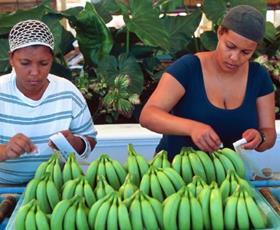
Proposed controls on imports of fresh produce considered to be 'high-risk' by the European Union have been dismissed as an uneccessary burden by the UK-based Fresh Produce Consortium (FPC).
According to the FPC, the controls, which come in the form of the implementation of EC Regulation 669/2009, will not provide additional protection for consumers and will impose additional costs and bureaucracy on importers.
In addition, the late consultation by the Food Standards Agency (FSA) on the implementation of the regulations gives the fresh produce industry insufficient time to set in place procedures before a final guidance is published and the regulation is put into place (25 January 2010), FPC said.
The regulation increases controls by setting out the frequency of physical checks and pesticide residue monitoring required for certain food from third countries, including bananas and mangoes from the Dominican Republic, pears and vegetables such as peppers, courgettes and aubergines from Turkey, and vegetables such as aubergines and brassicas from Thailand.
'The fresh produce industry is already required to provide prior notification and documentation for imports of fresh produce,' said Nigel Jenney, CEO of the Fresh Produce Consortium. 'The FSA's proposed implementation means that companies will have to complete an additional Common Entry Document for the Local/Port Health Authority covering each consignment of 'high-risk' product and pay them for the privilege. This runs completely counter to the government's objective of reducing the burden on industry regarding importation.
'The FSA's timeframe for holding fresh produce on average 10-15 days is totally unacceptable, given the highly perishable nature of these products,' he added. 'It will result in product being unfit for use, leading to loss of retail value of between £2m-5m each year and unnecessary wastage.'



